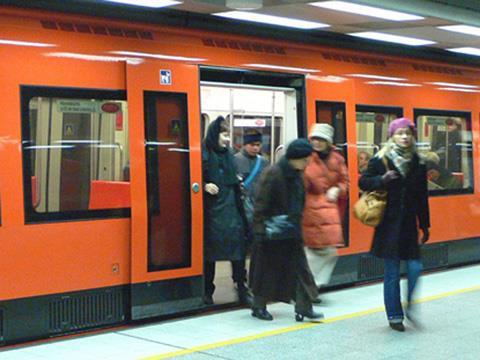
FINLAND: On January 19 Helsinki city council backed a December 18 decision by the board of city transport operator HKL to terminate the metro automation contracts signed with Siemens in 2008-09. HKL said negotiations with the supplier had failed to agree a way that the troubled project could be completed on time or within an acceptable cost.
HKL is keen to see the first phase of the Länsimetro extension to Espoo brought into service as soon as possible after construction is completed, with the opening now scheduled for August 2016. However, this could not be achieved without rethinking the delayed automation project.
Driverless operation had originally been due to begin on the existing lines in 2013, followed by the extension which was then expected to open in 2014. A significant problem emerged with the proposal to retrofit the automation equipment on a mixed fleet of older and newer trainsets. These have different door spacings, which poses problems for the installation of platform screen doors. In 2012 the project was scaled back from fully-unattended operation to having a train operator to close the doors and manage other functions.
HKL’s current plan envisages that the extension will open with drivers controlling the trains. Tenders for a new automation contract would be invited ‘in the 2020s’, for implementation once the existing trains have been withdrawn.
The latest CAF trains have been ordered with removable cabs, and HKL believes that even without automation it will be possible to run at 2½ min headways. It says this should be adequate to handle the projected traffic during the initial years following the opening of the extension.
On January 9 Siemens had put forward four options for a revision to the contract. These would have seen the launch of services with manual driving, followed by a long-term conversion to driverless operation. It suggested that these options could be implemented through a fixed price contract or under a risk-sharing alliance.
Siemens told Railway Gazette International that it ‘disputes the grounds for termination and will examine possible legal actions.’ The company said ‘an agreement on the continuation of the metro automation would have been the most sensible solution to all the parties, including the citizens. Siemens has been, and remains, prepared to negotiate a solution to enable the metro automation. Simultaneously with the Helsinki project, Siemens has opened automated metro lines in Barcelona, Budapest and Paris.’

















